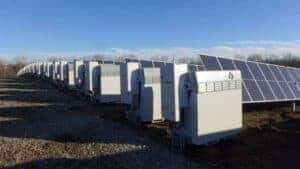A lithium-ion battery and a lithium-iron battery have very similar names, but they do have some very different characteristics. This article is going to tell you what the similarities and differences are between a lithium-ion battery and a lithium-iron battery.
Similarities Between Lithium-Ion and Lithium-Iron Batteries
First of all, both battery types operate based on a similar principle. The lithium ion in the batteries moves between the positive and negative electrode to discharge and charge.
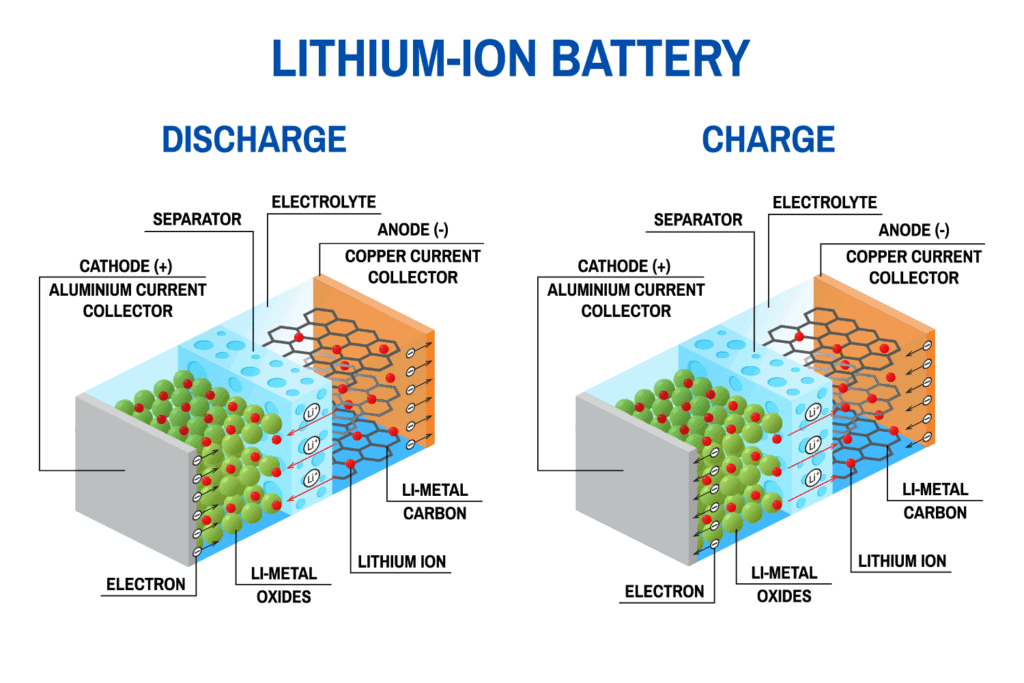
Secondly, both battery types are rechargeable. Thirdly, both of them use graphitic carbon electrodes with a metallic backing as the anode.
Both types of batteries are the application of a pretty new technology in the battery industry. In the past, nickel-based batteries occupied pretty much the entire battery market. With this being said, the lithium-based batteries still have room to improve until the technology gets mature. Thus, their price is pretty expensive at this point and not affordable for a portion of manufacturers.
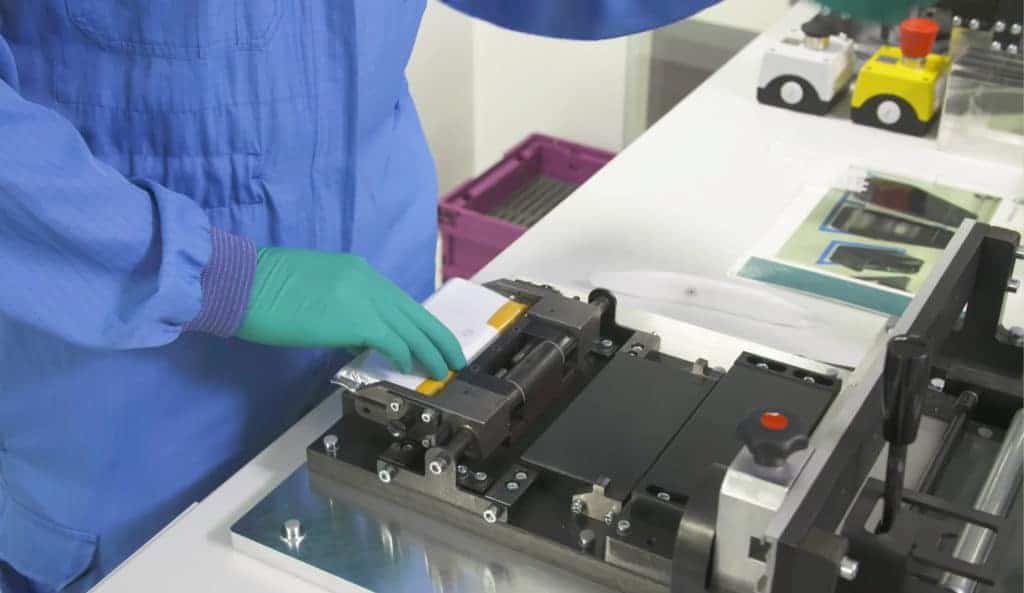
Differences Between Lithium-Ion and Lithium-Iron Batteries
Despite the characteristics they share in common, a lithium-ion and a lithium-iron battery are quite different in terms of their stability, life span, and application.
1. Different Chemical Makeups
First and foremost, obviously, you can easily tell by reading their names that these two types of batteries are made up of different materials. A lithium-ion battery usually uses lithium cobalt dioxide (LiCoO2) or lithium manganese oxide (LiMn2O4) as the cathode. Whereas, a lithium-iron battery, or a lithium-iron-phosphate battery, is typically made with lithium iron phosphate (LiFePO4) as the cathode. One thing worth noting about their raw materials is that LiFePO4 is a nontoxic material, whereas LiCoO2 is hazardous in nature. As a result, disposal of lithium-ion batteries has been a big concern for manufacturers and users.
2. Newer Technology
Secondly, lithium-iron batteries are a newer technology than lithium-ion batteries. The phosphate-based technology has far better thermal and chemical stability. This means that even if you handle a lithium-iron battery incorrectly, it is far less likely to be combustible, compared to a lithium-ion battery.
3. Different Lifecycles
Thirdly, phosphate chemistry offers a longer life cycle. Since both types of batteries are rechargeable, they already have a relatively long life span. Lithium-iron batteries are even more long-lasting because they are more stable under the conditions of overcharges or short circuits. On one hand, lithium-ion batteries are at 80% discharge efficiency, and they have a lifespan of 13 to 18 years. Its cycle durability is between 400 and 1200. On other other hand, the cycle durability is around 2000 for lithium-iron batteries.
Applications: Which Should You Choose?
Do these mean that lithium-iron batteries are just better than lithium-ion batteries? The short answer is no, and this leads to the fourth difference. Lithium-ion batteries have the highest energy density among all rechargeable battery types in the market. This means that charging a lithium-ion is relevantly easier and takes a shorter time. A lithium-iron battery also has a good density, but, generally speaking, it is less powerful than a lithium-ion battery. Not all batteries are good for each use though, so for some applications, lithium-iron may be better than lithium-ion, and vice-versa.
Last but not least, a popular application of lithium-ion batteries is cellphones and laptops. For example, the products manufactured by Apple Inc. use lithium-ion batteries. It can also be used in power tools, like saws, electric vehicles, and other portable devices, like cameras, tablets or even handheld game consoles. Due to the heat-tolerant nature and the longer lifespan of lithium-iron batteries, they are usually used in transportation, solar-powered lights, electronic cigarettes. More and more EV manufacturers are starting to use lithium-iron batteries as well.
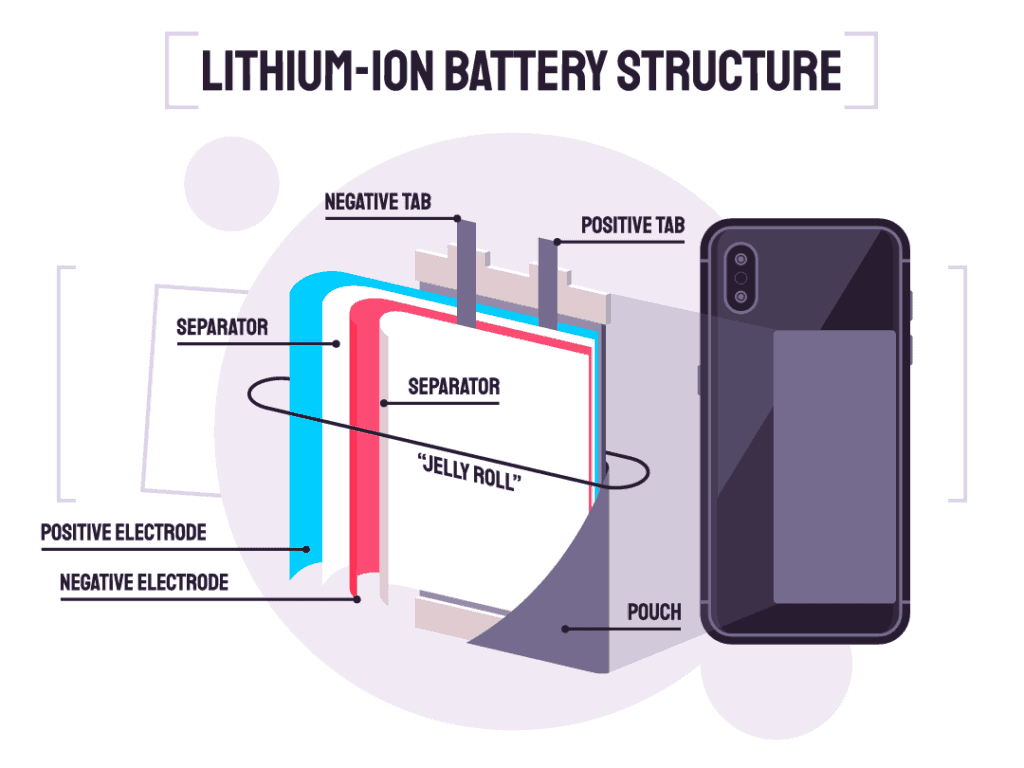
In the field of renewable energy, both lithium-ion and lithium-iron are popular types of commercial batteries used in energy projects. EnergyLink does provide battery storage service for customers and what’s more, we have a battery expert who knows basically everything about batteries. Click the green bar below to start a FREE conversation with him today!
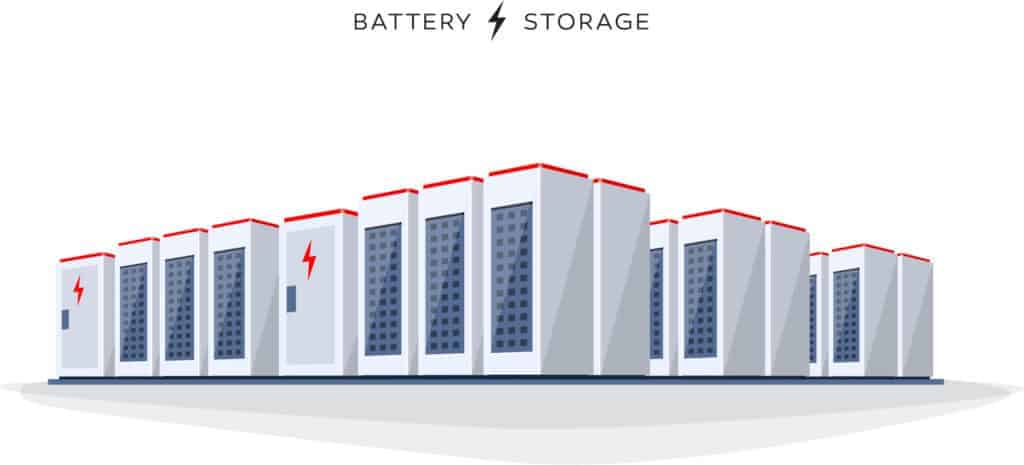
How to get batteries installed
The best avenue to get lithium iron or lithium ion batteries is through a licensed energy efficiency contractor like EnergyLink. Click here to learn more about how you can finance batteries >





